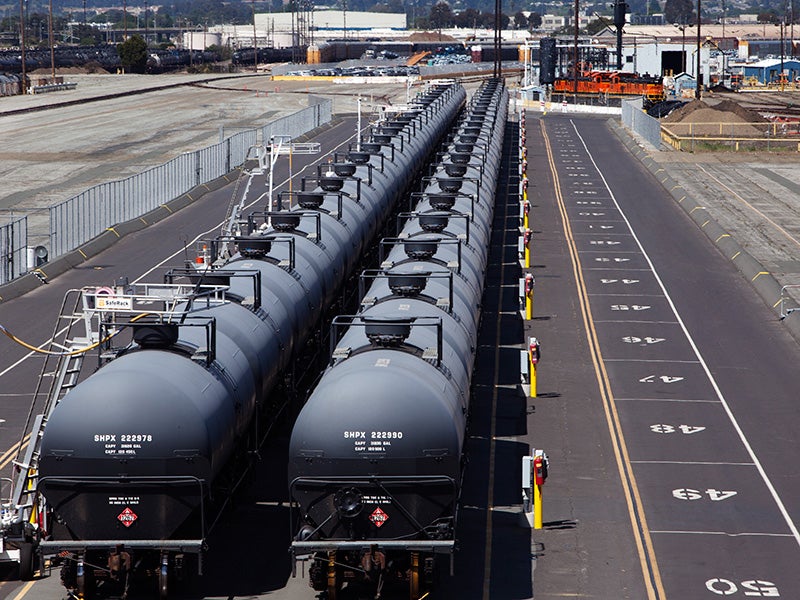Groups Challenge Sacramento Air District’s Furtive Approvals of Crude Oil Project
Decision makers bypass health, safety and public review processes for Inter-State Oil’s project
Contact
Earthjustice filed a lawsuit yesterday challenging the Sacramento Metropolitan Air Quality Management District’s rubber-stamping of construction and operating permits for Inter-State Oil Company to transfer Bakken crude oil from rail to truck, forgoing any public process or environmental impact review.
Earthjustice filed the complaint on behalf of the Sierra Club in Sacramento Superior Court. The suit holds the air district and Inter-State Oil accountable for neglecting to consider the potentially catastrophic risk to public health and safety that comes from bringing highly volatile fossil fuels on outdated freight cars along aging railways into residential and business areas in McClellan, Calif., just 7 miles north of the California state capital. Further, the air district eschewed its obligations for review under the California Environmental Quality Act (CEQA) despite the fact that the project will have significant increases in air pollutants, including toxic air contaminants.
The Sacramento Air District issued Inter-State Oil Company permits to operate its crude-by-rail terminal in early March. The case asks the court to halt operations immediately while the project undergoes a full and transparent review under CEQA.
“It’s becoming increasingly clear in California that the oil industry is cozying up to decision makers who are deliberately bypassing environmental and health laws to usher in perilous oil transport projects that put people in danger,” said Suma Peesapati, Earthjustice attorney. “We saw it in Richmond, we saw it in Kern County, and now we’re witnessing it in Sacramento. If we’re going to stem the flood of fossil fuels into California and protect the public from hastily approved, poorly planned projects, we demand transparent and law-abiding leadership.”
”Locating a facility at McClellan, where particularly dangerous crude oil is transferred from railcars to trucks, puts nearby residential areas at risk in the event of an accident,” said Terry Davis, Director of the Mother Lode Chapter of the Sierra Club. “This is an example of a public agency skirting the law and failing to ensure that everything possible is done to protect the public.”
The number of trains carrying crude oil around the country has risen dramatically in the last two to three years, due to the increased oil production from both the Alberta tar sands in Canada and the Bakken shale oil area of North Dakota.
The California Public Utilities Commission, office of Rail Safety, released a report in November 2013 listing a number of alarming railway safety concerns associated with the increased movement of crude oil by rail through California. The report specifically identifies California’s railroad bridges as a significant rail safety risk.
Bakken crude is extremely explosive and toxic. In January, the U.S. federal agency that regulates hazardous materials on the rails issued an alert, stating that Bakken crude may be more flammable than other types of crude. In both the U.S. and Canada, as the number of train cars carrying crude oil has quadrupled over the past six years, accidents, explosions and derailments have dramatically increased. Last July, a train carrying crude oil derailed and exploded in a town in Quebec, Canada, killing 47 local residents and destroying most of the downtown area.

Additional Resources
About Earthjustice
Earthjustice is the premier nonprofit environmental law organization. We wield the power of law and the strength of partnership to protect people's health, to preserve magnificent places and wildlife, to advance clean energy, and to combat climate change. We are here because the earth needs a good lawyer.